Abstract
The method of evolutionary stable strategies (ESS), in its current form, is confronted with a difficulty when it tries to explain how some social behaviors initiate their evolution. We show that this difficulty may be removed by changing the assumption made tacitly in game theory (and in ESS) of randomness of meetings or encounters. In reality, such randomness seems to be rare in nature. Family, population and social structure, customs, and habits impose various types of deviation from randomness. Introducing nonrandomness of meeting in a way formally similar to assortative mating, we show that the bar to initial increase of inherited cooperative or altruistic behaviors can be removed, provided there is sufficient assortment of meetings. Family structure may cause contacts predominantly between certain types of relatives, and one can reconstruct some results of classical kin selection in terms of evolutionary stable strategy with assortative meetings. Neighbor effects and group selection might be similarly treated. Assortment need not be a passive consequence of population and social structure, but it can also be actively pursued. Behaviors favoring the choice of cooperative companions will have the effect of favoring the evolution of cooperativeness. It can be shown that discrimination in the choice of companions, especially if combined with assortment, can favor the development of cooperativeness, making initial increase of cooperative behavior possible even at levels of assortment passively imposed which would not be adequate, per se, to guarantee the increase of cooperativeness. It is possible that, in some cases, cooperativeness and behavior favoring some type of assortment are coselected.
Keywords: altruism, evolutionary stable strategies, assortative meetings
Full text
PDF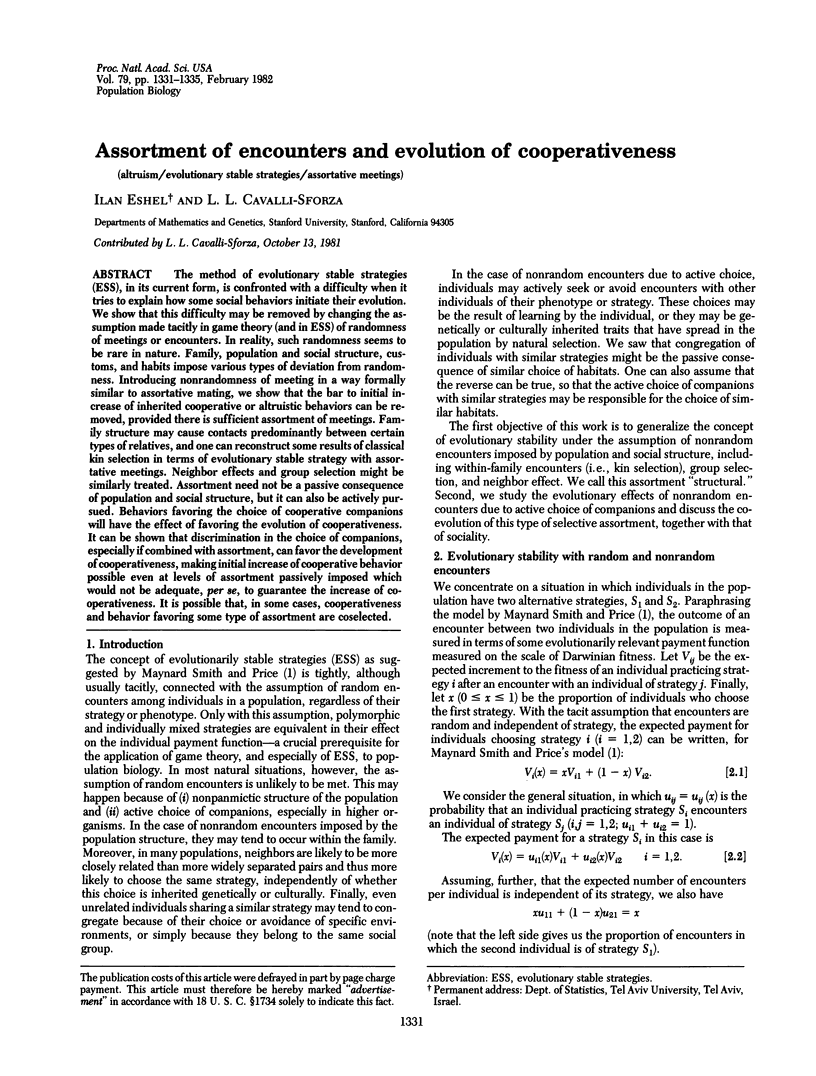
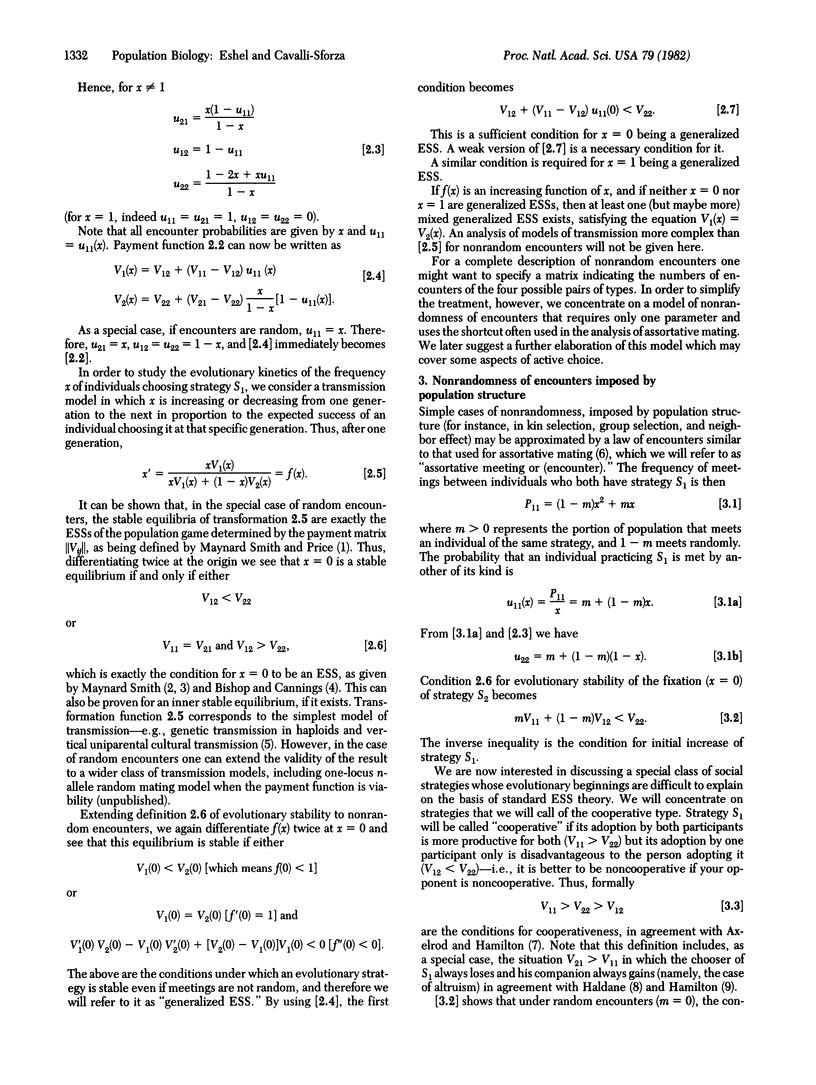
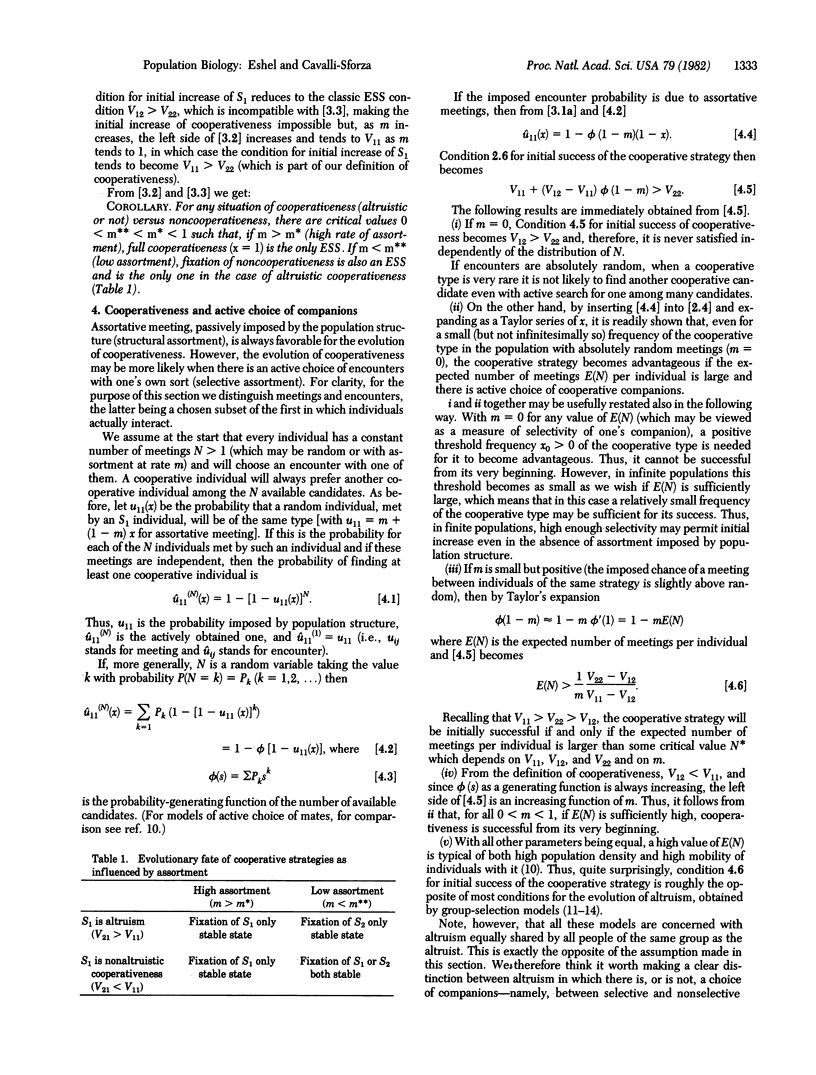
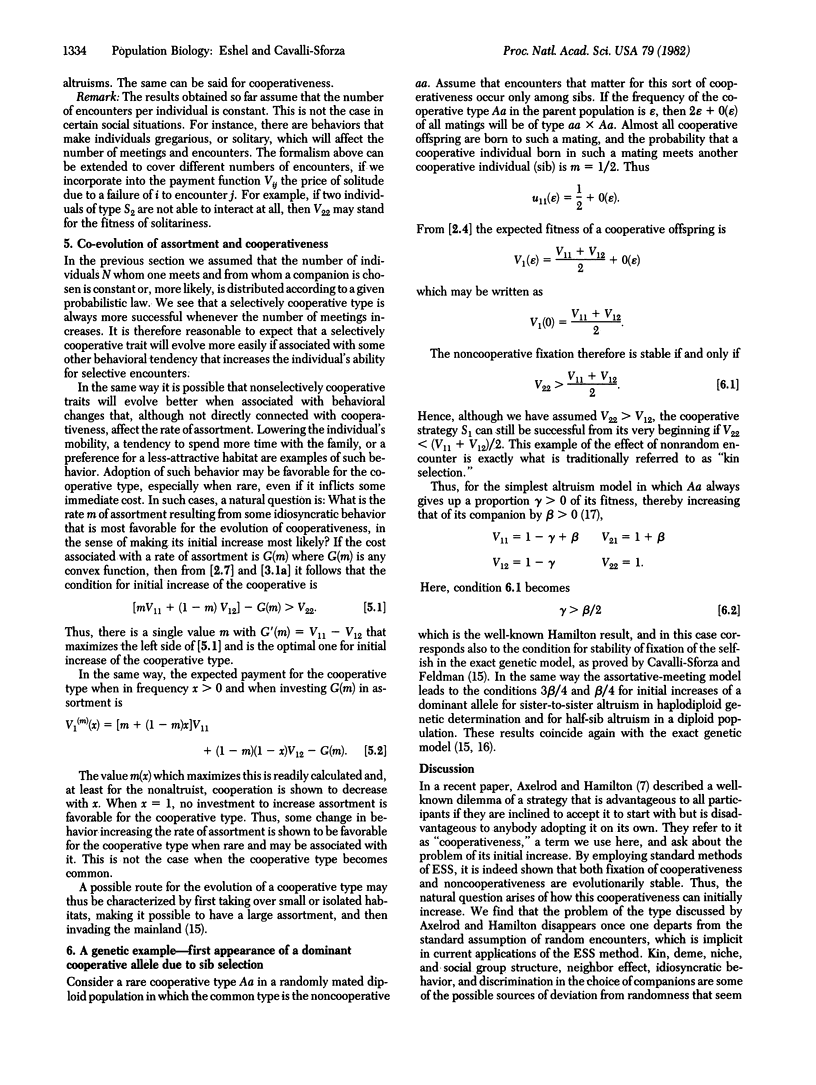
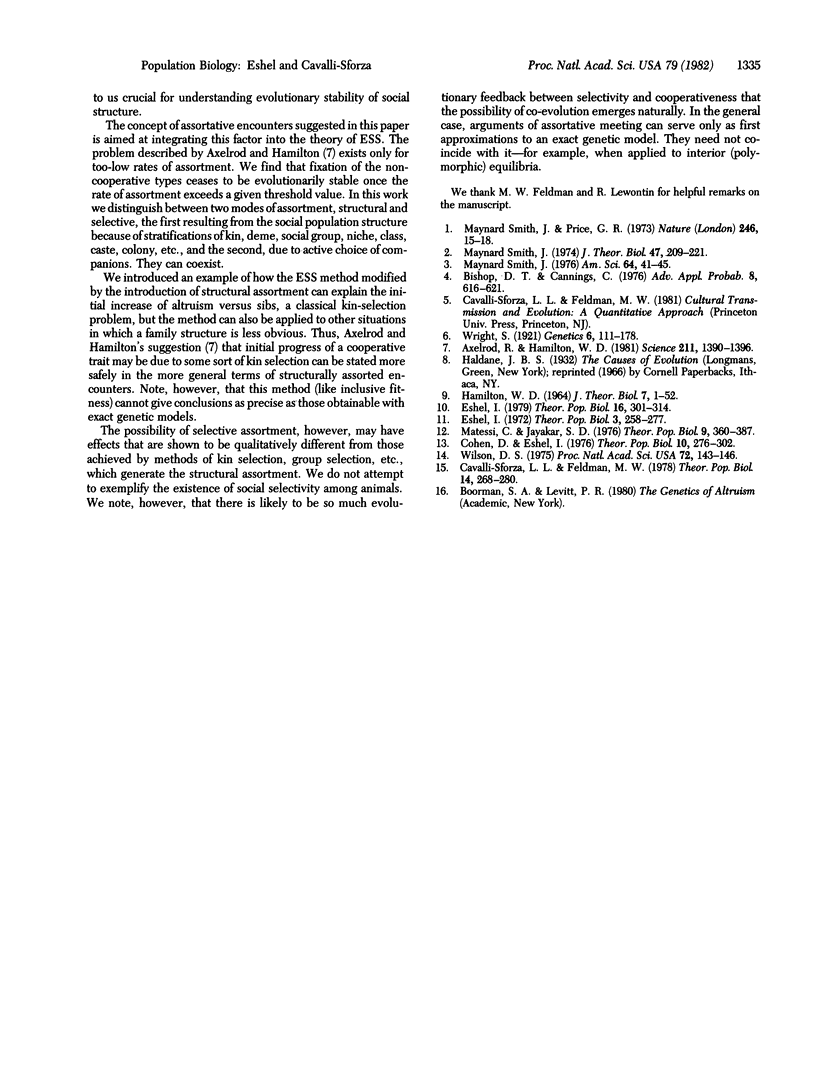
Selected References
These references are in PubMed. This may not be the complete list of references from this article.
- Axelrod R., Hamilton W. D. The evolution of cooperation. Science. 1981 Mar 27;211(4489):1390–1396. doi: 10.1126/science.7466396. [DOI] [PubMed] [Google Scholar]
- Cavalli-Sforza L. L., Feldman M. W. Darwinian selection and "altruism". Theor Popul Biol. 1978 Oct;14(2):268–280. doi: 10.1016/0040-5809(78)90028-x. [DOI] [PubMed] [Google Scholar]
- Cohen D., Eshel I. On the founder effect and the evolution of altruistic traits. Theor Popul Biol. 1976 Dec;10(3):276–302. doi: 10.1016/0040-5809(76)90020-4. [DOI] [PubMed] [Google Scholar]
- Eshel I. On the neighbor effect and the evolution of altruistic traits. Theor Popul Biol. 1972 Sep;3(3):258–277. doi: 10.1016/0040-5809(72)90003-2. [DOI] [PubMed] [Google Scholar]
- Eshel I. Sexual selection, population density, and availability of mates. Theor Popul Biol. 1979 Dec;16(3):301–314. doi: 10.1016/0040-5809(79)90019-4. [DOI] [PubMed] [Google Scholar]
- Hamilton W. D. The genetical evolution of social behaviour. II. J Theor Biol. 1964 Jul;7(1):17–52. doi: 10.1016/0022-5193(64)90039-6. [DOI] [PubMed] [Google Scholar]
- Matessi C., Jayakar S. D. Conditions for the evolution of altruism under Darwinian selection. Theor Popul Biol. 1976 Jun;9(3):360–387. doi: 10.1016/0040-5809(76)90053-8. [DOI] [PubMed] [Google Scholar]
- Wilson D. S. A theory of group selection. Proc Natl Acad Sci U S A. 1975 Jan;72(1):143–146. doi: 10.1073/pnas.72.1.143. [DOI] [PMC free article] [PubMed] [Google Scholar]
- Wright S. Systems of Mating. V. General Considerations. Genetics. 1921 Mar;6(2):167–178. doi: 10.1093/genetics/6.2.167. [DOI] [PMC free article] [PubMed] [Google Scholar]


